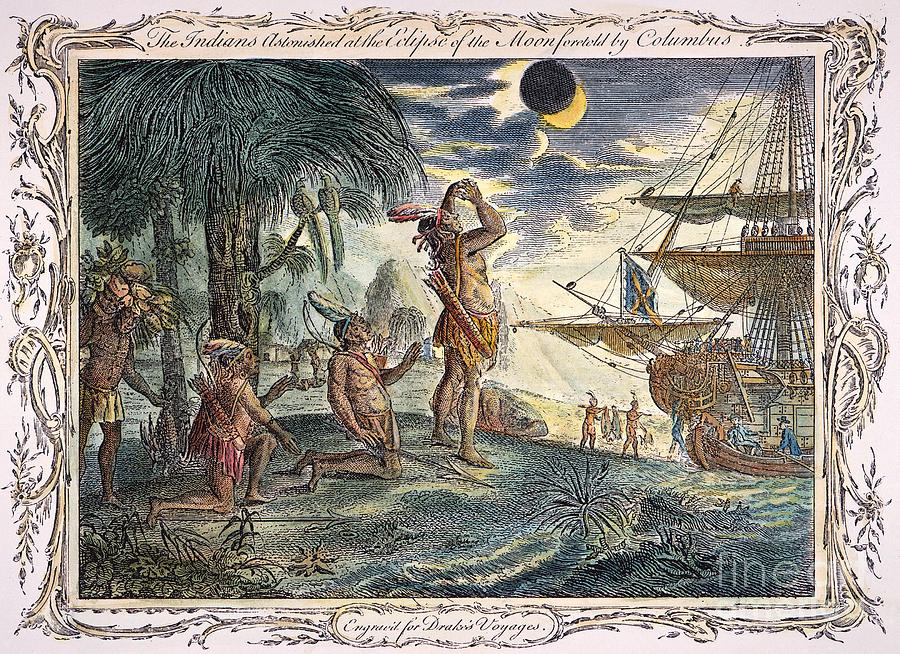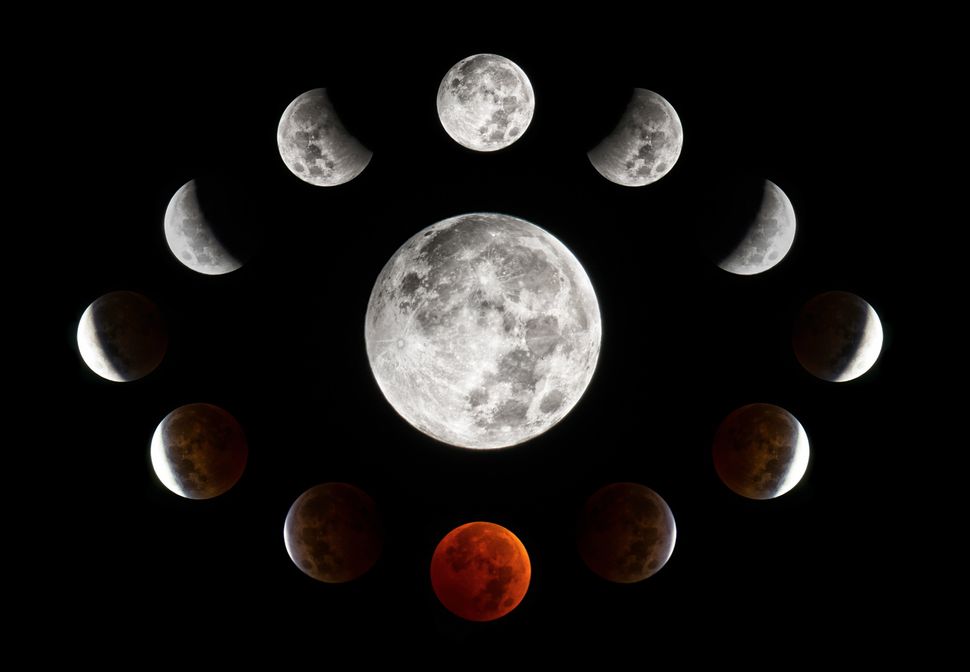Columbus called a meeting with the chiefs of the nearby tribes shortly before the eclipse was to take place. In this meeting, he told them his god was angry with them for ceasing to give him supplies. As a result, his god would take away the moon as a sign of his anger and subsequently punish them for their actions.
On this day in history, 1504, Christopher Columbus convinced a group of Native Jamaicans that his god was angry with them for ceasing to provide his group with supplies and that god would show his anger with a sign from the heavens. The sign was a lunar eclipse that Columbus knew was imminent.
This event occurred on Columbus’ fourth and final voyage to the Americas, which began in Cadiz in 1502. Columbus landed near the north coast of Jamaica on June 20, 1503 with only two of his original four ships still afloat, but barely sea worthy due to a shipworm infestation. Space.com:
Initially, the native peoples (Arawak Indians) welcomed the castaways, providing them with food and shelter, but as the days dragged into weeks, tensions mounted. Finally, after being stranded for more than six months, half of Columbus' crew mutinied, robbing and murdering some of the Arawaks, who themselves had grown weary of supplying cassava, corn and fish in exchange for little tin whistles, trinkets, hawk's bells and other trashy goods. With famine now threatening, Columbus formulated a desperate, albeit ingenious plan.
Columbus had an almanac with him, compiled by the German astronomer Johannes Müller von Königsberg, better known today by his Latin name, Regiomontanus (wiki). This almanac contained detailed information about the sun, moon and planets, as well as the more important stars and constellations to navigate by - with its help, explorers were able to leave their customary routes and venture out into the unknown seas in search of new frontiers.
The almanac predicted there would be a total lunar eclipse on the evening of February 29, 1504. Columbus also gave an estimation of what time it would occur; this start time was based on Nuremberg, Germany time, so Columbus had to do a bit of estimating. Regiomontanus had even included fairly accurate information as to how long the eclipse would last.
Counting on this accuracy, Columbus called a meeting with the chiefs of the nearby tribes shortly before the eclipse was to take place. In this meeting, he told them his (Columbus's) god was angry with the natives for ceasing to give him supplies. As a result, his god would take away the moon as a sign of his anger and subsequently punish them for their actions.
Amazingly, the prediction proved correct. As the full moon rose in the east on the appointed night, Earth's shadow was already biting into its face. As the moon rose higher, the shadow became larger and more distinct until it completely obscured the moon, leaving nothing but a faint red disk in the sky.
The natives were sufficiently frightened by this unexpected occurrence and by Columbus's uncanny prediction to beg forgiveness and appeal to him to restore their moon to the sky. Columbus responded that he wished to consult with his deity. He retired to his quarters, using a half-hour sandglass to time how long the eclipse would last. Some time later, when the eclipse had reached totality, he emerged to announce that the moon, in answer to his prayers, would gradually return to its normal brightness.
The next day, the natives brought food and did all they could to please Columbus and his crew.
Columbus and his crew were picked up a few months later when a ship from Hispaniola arrived in Jamaica on June 29, 1504. They arrived back in Spain on November 7, 1504.
Pre-knowledge of eclipse timing to fool the natives has been used as a plot device many times, including, most famously, H. Rider Haggard's King Solomon's Mines, and Mark Twain's A Connecticut Yankee in King Arthur's Court.
More on the mechanics of eclipses here. and more on the Columbus incident at Science News, Today I Found Out, and Space.com.



maybe Tecumseh too: https://www.eclipse-chasers.com/article/history/tse1806.html
ReplyDelete